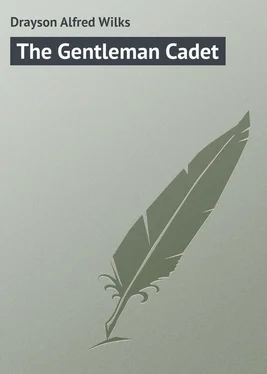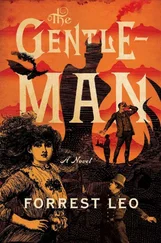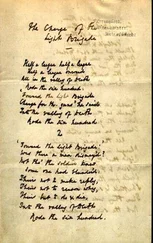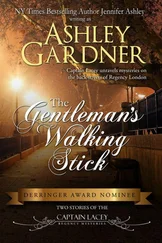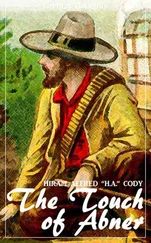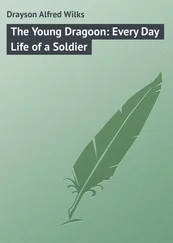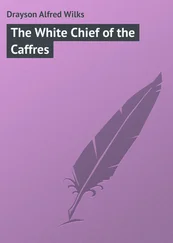Alfred Drayson - The Gentleman Cadet
Здесь есть возможность читать онлайн «Alfred Drayson - The Gentleman Cadet» — ознакомительный отрывок электронной книги совершенно бесплатно, а после прочтения отрывка купить полную версию. В некоторых случаях можно слушать аудио, скачать через торрент в формате fb2 и присутствует краткое содержание. Жанр: foreign_prose, foreign_children, foreign_language, на английском языке. Описание произведения, (предисловие) а так же отзывы посетителей доступны на портале библиотеки ЛибКат.
- Название:The Gentleman Cadet
- Автор:
- Жанр:
- Год:неизвестен
- ISBN:нет данных
- Рейтинг книги:3 / 5. Голосов: 1
-
Избранное:Добавить в избранное
- Отзывы:
-
Ваша оценка:
- 60
- 1
- 2
- 3
- 4
- 5
The Gentleman Cadet: краткое содержание, описание и аннотация
Предлагаем к чтению аннотацию, описание, краткое содержание или предисловие (зависит от того, что написал сам автор книги «The Gentleman Cadet»). Если вы не нашли необходимую информацию о книге — напишите в комментариях, мы постараемся отыскать её.
The Gentleman Cadet — читать онлайн ознакомительный отрывок
Ниже представлен текст книги, разбитый по страницам. Система сохранения места последней прочитанной страницы, позволяет с удобством читать онлайн бесплатно книгу «The Gentleman Cadet», без необходимости каждый раз заново искать на чём Вы остановились. Поставьте закладку, и сможете в любой момент перейти на страницу, на которой закончили чтение.
Интервал:
Закладка:
Chapter Five
Mr Hostler’s Cram-School
It was the practice for our school to be taken out for a walk on Sunday mornings, and to go on to the barrack-field at Woolwich, to see the march past previous to the troops going to church. At this march past the splendid band of the Royal Artillery used to play at the head of the regiment, whilst immediately following the band, and heading the regiment, were two companies of gentlemen cadets.
At the church-parade on Sundays the cadets turned out in full-dress, which consisted of white trowsers, a blue tailed coat with red facings, a shako and plume. Such a dress now would look old-fashioned, but to my boyish eyes it seemed in those days the pattern of neatness, and of a soldierlike appearance.
To me everything military possessed the charm of novelty, but I must own that nothing I had ever imagined previously came up, in my ideas, to the magnificent sight that I for the first time now witnessed. I had never before heard a military band, and I gazed with wonder at the immense display of musicians, headed by a splendid-looking man, arrayed in gold lace, and swinging a huge gold-headed stick, as tall as himself, which he dexterously manipulated in time with the music. There is always something spirit-stirring in the sound of martial music, and I stood entranced as the band marched past me, turned sharp to the left as though worked by machinery, and, wheeling about, faced me, as they continued the slow march they were playing.
“Here come the gentlemen cadets!” said some of the civilians, who by hundreds had assembled to see the Sunday march past. “Look how splendidly they march?”
“What a fine set of young fellows!”
I pushed myself into a front position as I heard these remarks, and saw advancing at a slow march a line of soldiers, moving as though they were part and parcel of each other. With heads erect, and shoulders well thrown back, this line advanced; the marching was perfect. As the leading company approached a flag, beside which were several officers, who I noticed were covered with medals, a tall cadet shouted, “Bear rank take open order!” and, coming out to the front, led the company onward. So new was the sight to me, so splendid did it all appear, and so imposing, that I felt a half-choking sensation as I looked at and admired every movement. As the leading cadet passed the flag I saw him go through some movement, which concluded with his raising his hand to his cap in what I knew must be a salute. I heard murmurs of applause among the bystanders, and the deep, decided voice of an old officer at the flagstaff exclaim, “Well marched, gentlemen; very well marched.”
There was a something, I don’t know what to call it, but it seemed like a flash of intelligence passed across the faces of the cadets as they heard these words. They marched on as rigidly as ever, not a cadet an inch before or behind his neighbour, but there was a sparkle in the eye of each cadet that showed the words spoken by the officer had been heard and appreciated by front and rear rank of the cadets.
“Who is that officer?” I heard a civilian ask.
“That is Lord Bloomfield, the commandant,” was the reply.
I looked at the commandant, and saw a handsome, soldierlike-looking man in a splendid uniform, but he was too far removed from me in years and rank to produce any special sympathy on my part; the hero of the day in my mind was the cadet who had given the order to open the ranks, whilst every one of the forty cadets forming the first company that had marched past was to me an object of admiration. At that moment I would have given much to have been one among that company, and to have marched past as they had marched.
As the cadets marched before us, I could hear some of my schoolfellows calling attention to several cadets who were known to them.
“There’s Duckworth, who passed third last Christmas,” said one of them. “He’s second of his batch now, and is sure of the Engineers, they say.”
“There’s Hobson in the rear rank, with the brass collar; he got second-class mathematical prize; and see how well Jackson marches; he’s an awful swell now since he got sixty runs and carried out his bat in the last match with the officers. Look at that brute Tims,” exclaimed another; “I hope he’ll be spun at his probationary, or he’ll be an awful bully as an old cadet when I am a neux.”
These and other similar remarks I heard near me, just as a feeling of utter misery came over me as I realised the fact that it was impossible I could ever be a cadet. What I had seen on that parade had instilled into me military ambition, and if I had then and there been offered the option of a peerage or of being a gentleman cadet, I am perfectly certain I should have jumped at the chance of being a cadet. I now fully realised the absurdity of my having said at Mr Hostler’s that I was going to be an engineer, for I had already discovered that I was, compared to other boys, a dunce, and that it required a boy to be not only very clever, but to have been thoroughly well prepared, to stand any chance of being among the first flight in the intellectual race at the Academy. Consequently my remarks about being an engineer, though uttered in all simplicity and ignorance by me, appeared to others as conceited and vain-glorious, as though it were announced that a screw of a horse was going to Epsom to win the Derby. I was now not surprised that I had been, and still remained, a laughing-stock to my schoolfellows on account of my ignorance.
A third of a century has passed since that Sunday morning on which I was first a witness of a military display. During the interval, many strange and wonderful scenes have passed before us, and we have seen a large portion of our globe; but we cannot recall any pageant that has produced upon us half the effect that was produced by a simple marching-past parade, in which the gentlemen cadets, as the first company of the Royal Artillery, marched at the head of the regiment.
Since those days years have produced their effect upon our mind and body, but we are convinced a far greater effect has been produced on society than on us individually. Formerly any man or boy, who by labour, gallant deeds, intellectual power, or skill, had distinguished himself, and had thereby, even temporarily, gained a position of eminence, received the deference considered then due to him.
To the Woolwich schoolboy the gentleman cadet was a being so far above him that he was to be approached only with bated breath and whispering humbleness. To the cadet the officer was an emblem of authority and rank far above criticism, and to be treated only with respect, and obeyed without murmur. To the last-joined cadet the old cadet was an object of mingled fear and admiration – fear because, in the days of which we write, fagging was at its height, and too often was abused, and degenerated into bullying; and admiration because the old cadet had surmounted difficulties which it had yet to be proved the young cadet could surmount. What may be described as “veneration” for rank and seniority was then at its height, and impressed its influence even on the members of a cram-school such as Mr Hostler’s.
He himself, as master of the school, used his best endeavours to keep this sentiment alive. The career of those boys who had done well at the Academy was often referred to by Hostler, and comparisons made between what had been accomplished by other and former pupils, and what was likely to be done by those now at the school. Amongst those whose reputation stood highest at Hostler’s I found the name of my friend Howard was well known. He had done well at the Academy, had gained several prizes, and had left behind him a reputation that was not likely to die out soon.
In those days a boy at school used to look with a mingled feeling of respect and fear at a cadet; to be seen speaking familiarly with a cadet was enough to give a boy a position in a school, whilst an officer was regarded as belonging entirely to another order of being, whose sayings and doings were merely to be quoted as examples for future guidance.
Читать дальшеИнтервал:
Закладка:
Похожие книги на «The Gentleman Cadet»
Представляем Вашему вниманию похожие книги на «The Gentleman Cadet» списком для выбора. Мы отобрали схожую по названию и смыслу литературу в надежде предоставить читателям больше вариантов отыскать новые, интересные, ещё непрочитанные произведения.
Обсуждение, отзывы о книге «The Gentleman Cadet» и просто собственные мнения читателей. Оставьте ваши комментарии, напишите, что Вы думаете о произведении, его смысле или главных героях. Укажите что конкретно понравилось, а что нет, и почему Вы так считаете.
